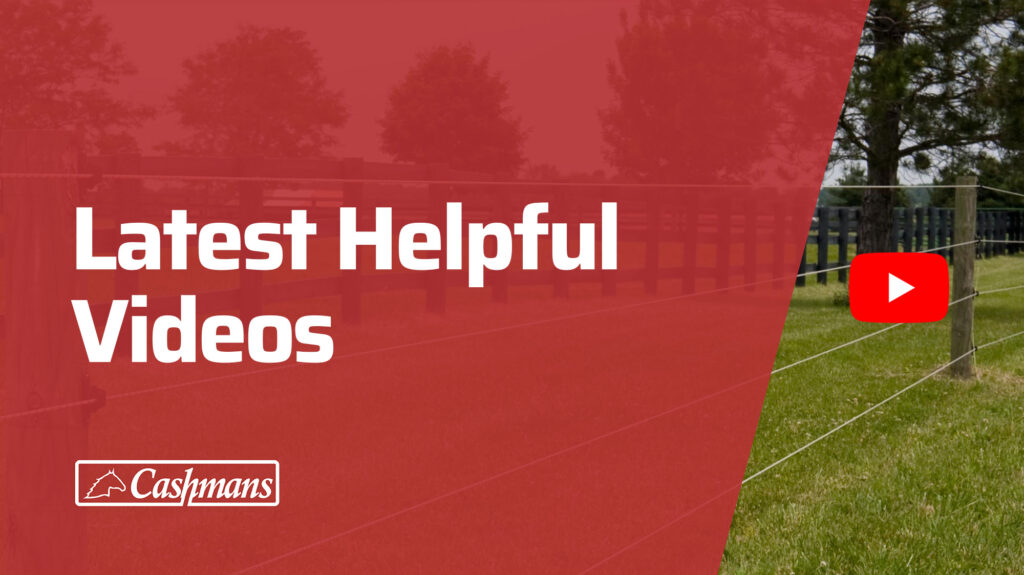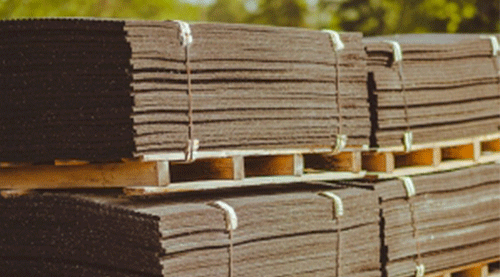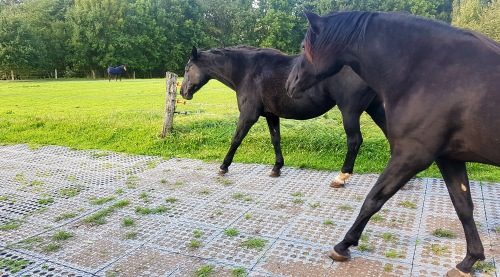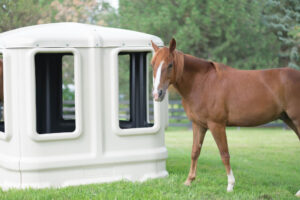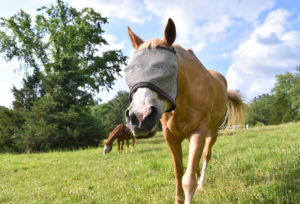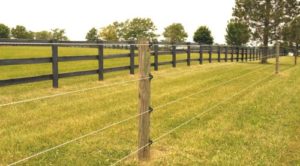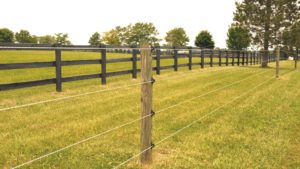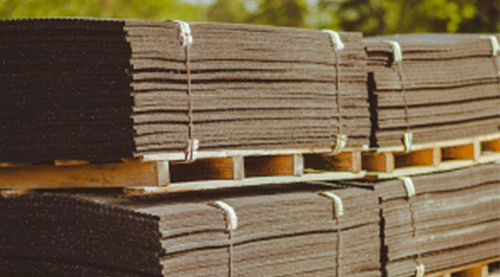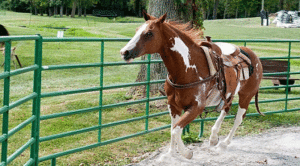
Red, White & BOOM! 6 Tips For Horse Safety
by Lisa Kiley | Published in the Horsemen’s Corral July 2022
Fireworks season is officially upon us! Many of you are probably looking forward to celebrating the 4th of July holiday with friends and family. That may include a fireworks show of some kind.. Growing up, the 4th of July has always been my favorite holiday. The fun of watching brilliant lights sparkling in the sky and how the sights and sounds can captivate an audience into silence and awe, even if just for a few minutes. However, as I have gotten older, I tend to think more practically about how these festivities can affect the animals in my life. Thankfully, there are some things that we can do to help ensure that our animals (especially our horses) are safe while we are celebrating.
Get in the Know – First off, it’s important to know when fireworks events are happening in your area. It’s a good idea to check with the city and county where you live to find out when and where fireworks shows will be taking place. That way you can determine how much they might affect the horses in your care. Did you know that in Ohio, as of July 1st, 2022 there is a new legislation going into effect that allows citizens to set off fireworks on holidays including (of course) the 4th of July? This may mean more loud noises/flashes in areas even closer to your barn. So prepare in advance and put the other dates on your calendar too!
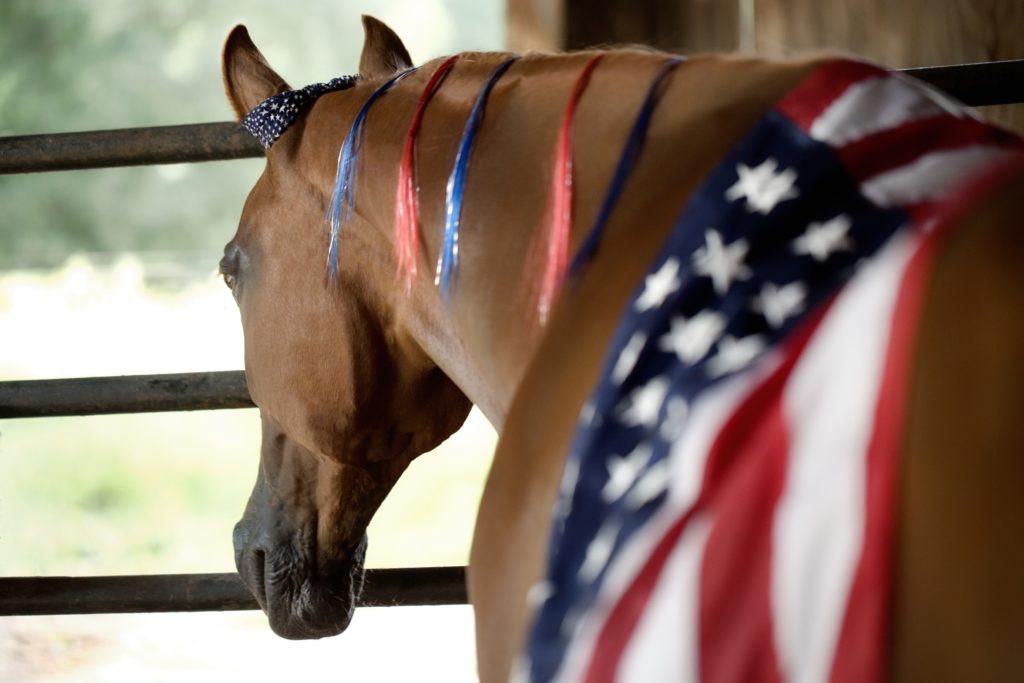
Talk to your Neighbors – Some of us have great neighbors, while others can leave a bit to be desired. Either way, it does pay to have some open lines of communication when it comes to activities that have the potential to affect what happens on your property. It’s worth the effort to see if any of your surrounding neighbors are planning on having activities that will involve fireworks. This will allow you to make a plan for your animals during that timeframe. Hopefully they will be respectful of your concerns and work with you in a neighborly way.
Common Sense Safety – Maybe you and your family are planning on celebrating by setting fireworks off on your own property. If this is the case, make sure that you are following all safety precautions and instructions. It is also a good idea to have a fire extinguisher and a water source nearby and stay away from areas that are particularly flammable. July can be a very dry month, so keeping an eye out on the weather and proceeding with caution is the safest bet. If you have kids on the property, make sure that they understand never to play with fireworks near barns or by horses/livestock. Even a simple sparkler can start a fire or cause burns.
Make a Plan – Once you know what to expect, make a plan for the horses on your property. Some horses will be unaffected by fireworks, while others may have major stress reactions. If your horse is accustomed to being in a stall, keeping them in on nights when there are fireworks planned is a great idea. Playing music in the barn, the noise of fans, or even ear plugs can help muffle the booming sounds that may bother them. If a stall isn’t an option, even a safe smaller paddock or corral with a shelter can provide a safe haven. Adding an extra flake of hay can help keep them distracted as well. The idea is to give them some shelter in a secured area. If a horse or a herd of horses start spooking in a large open area, there is more of a likelihood that they could run through the fence and injure themselves or get loose, and that is what we are really trying to prevent.
Commit to Desensitizing – While horses each have their own unique personality, we as owners can help them to be more relaxed and calm in their environment by working with them throughout the year. By putting regular effort in to build a horse’s confidence, they should have less of a reaction when things happen that are out of the ordinary, like fireworks. Horses can become desensitized to loud noises; it just takes some time and patience. If a horse is in a group, it can also change how they react to stimuli – herd mentality – and be harder to deal with than just one individual horse that is spooking. With particularly reactive horses, it can be helpful to seek the advice of a trusted trainer who can help you and your horse prepare for these types of situations. The effort you put in will be rewarded with a better partnership with you and your horse overall.
Consult your Veterinarian – If you have a horse that has a history of reactive behavior or they are at increased risk for injuring themselves, it’s probably a good idea to talk to your veterinarian about options. Give them some advanced notice of your concerns so that they can help determine if there is a supplement or medication that may help with the reactive behavior in situations like this. In any case, they would much rather help someone prevent an issue rather than come out in the middle of the night to fix a problem that could have been avoided.
From everyone at Cashmans hope that you all have a fun and safe 4th of July weekend!!
Cashmans Helpful Resources
Recommended For You
-
-
Stable Ground Mud Solution
$17.50




